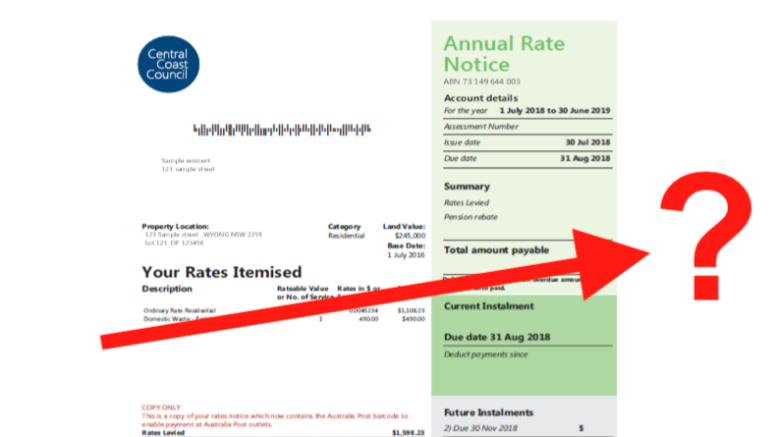The Independent Pricing and Regulatory Tribunal (IPART) has set the maximum amount by which Central Coast councillors can increase next year’s rates.
The councillors can decide to set rates lower than 4.3 per cent but they can’t go higher than that.
Council’s decision to set the rates will not take place until late in the current financial year and will take effect from July 1, 2025.
On October 1, IPART published its core rate pegs for 2025/26 range from 3.6 per cent to 5.1 per cent across the 128 NSW councils, with the Coast’s set at 4.3 per cent.
That included a core rate peg of 3.8 per cent and an extra 0.5 per cent for population factors.
IPART said the rate pegs limited the amount by which councils could increase their rates income, while allowing them to meet changes in the cost of providing services.
The core rate pegs are based on employee cost increases, forecast inflation and council-specific changes in emergency services levy contributions, and election cost estimates.
A population factor was also applied to 72 of the 128 councils with growing populations, increasing their final rate pegs.
“These councils will be able to spread the larger increase in general income across the increased number of ratepayers,” IPART said.
“The rate pegs including the population factors range from 3.7 per cent to 7.6 per cent.”
In response to Coast Community News, Council said the rate peg of 4.3 per cent for Central Coast Council was within the expected range that Council planned for next financial year.
“The resolution to adopt the 2025/26 rate in the dollar that is applied to each property land value, will be included as part of the adoption of the Operational Plan which is expected in June 2025,” Council said.
IPART has decided that no limit is to apply to the percentage by which NSW councils can vary their domestic waste management (DWM) annual charges for the 2025/26 financial year.
“This decision takes into account the NSW Office of Local Government’s regulatory approach for DWM annual charges,” IPART said.
Under the Local Government Act 1993, councils must set DWM annual charges such that the income obtained from charges does not exceed the reasonable cost to the council of providing those services.
Merilyn Vale



